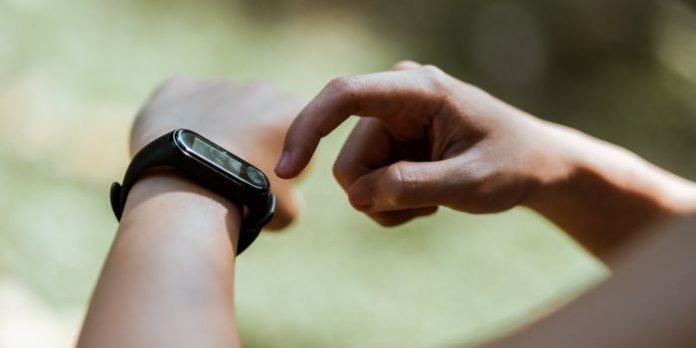A new study investigated whether wearable activity trackers could detect biomarkers associated with depression and whether this could be an effective screening method for depression.
Depression is a very common mental health condition, affecting roughly five percent of adults globally.1
Depressive disorders are complicated, and they ultimately impact people in different ways.
However, they can bring significant psychological, physical, and social burdens on individuals, and if left untreated, may be associated with further complications.
Despite the high prevalence and significant impact of depression, it is estimated that about half of all cases go undiagnosed.2
A variety of factors can contribute to the lack of diagnoses; however, this is generally not ideal as many people struggling with this invisible condition may not get the treatment they need.
Although treatment plans for depressive disorders vary significantly based on the individual and may require some trial and error, more research continues to be done on effective therapies to improve quality of life.
Receiving a diagnosis could be very beneficial for someone struggling with depression as it can help someone start the treatment process.
Moreover, studies suggest that there is a potential relationship between early diagnosis and treatment and better outcomes.3,4
Depression is ultimately difficult to diagnose, as a variety of risk factors may be associated with depressive disorders.2
However, an increasing body of evidence is investigating different biological risk factors – or biomarkers – and whether these can help in screening for depression.2
Current research
Current research suggests that an increased risk of depression may be linked to less physical activity and sleep disturbances.2,5,6
Researchers in Singapore performed a study to further investigate these biomarkers with respect to depression risk, as well as determine whether a wearable activity tracker could detect them.2
The study took place between August and October 2019, and the participants included 290 healthy adults over the age of 20 who worked full-time at Nanyang Technological University.2
Participants wore a Fitbit Charge 2, which is a commercially-available activity tracker, for at least 14 days to track various biomarkers.
These biomarkers were associated with physical activity, sleep, and circadian rhythms, which are essentially the body’s internal clock.2
To screen for depression in the study group, participants also completed the 9-item Patient Health Questionnaire (PHQ-9), which is a self-reported survey frequently used to clinically screen for depressive disorders.7
PHQ-9 scores range from zero to 27, and higher scores are intended to represent greater severity of depressive symptoms.8
They took the questionnaire before and after the study, and the average score of each participant’s two tests was used for analysis.2
Participants wore the device for an average of 17 days and 20 hours with a compliance rate of about 85%, and complete tracking data was able to be extracted for 267 participants.2
After adjusting for confounding variables – variables that may impact the significance of an association – three particular biomarkers were associated with PHQ-9 scores:
- lower weekday steps,
- lower circadian rhythm stability, and
- increased variation of heart rate between 4:00 am and 6:00 am
In this study, these biomarkers were associated with higher PHQ-9 scores.2
The results of the study suggest that these three biomarkers detected by wearable technology could be potential areas of interest for future research in depression screening.
More research is needed to confirm these results, as well as determine whether these findings would take place in a larger population or different demographics.
Relevant topics that may be of interest to you:
- Can wearable activity monitors help monitor cancer development?
- Do wearable defibrillators save lives?
- New wearable device tracks UV exposure
- Wearable sensors to detect early signs of anxiety in children are in development
- Smartphones more useful than wearables as remote patient monitoring devices
- Wearable devices can detect COVID-19
- Top Benefits of Wearable Technology in Home-Based Healthcare
References:
- World Health Organization (2021 September 13). Depression. Accessed 2022 January 27, from https://www.who.int/news-room/fact-sheets/detail/depression
- Rykov, Y., Thach, T., Bojic, I., et al (2021). Digital biomarkers for depression screening with wearable devices: Cross-sectional study with machine learning modeling. JMIR Mhealth Uhealth 2021;9(10):e24872. Doi: 10.2196/24872
- Farid, D., Li, P., Da Costa, D., et al (2020, August 14). Undiagnosed depression, persistent depressive symptoms and seeking mental health care: analysis of immigrant and non-immigrant participants of the Canadian Longitudinal Study of Aging. Epidemiology and Psychiatric Sciences 29:E158. Doi: 10.1017/S2045796020000670
- Williams, S.Z., Chung, G.S., Muennig, P.A. (2017, July 28). Undiagnosed depression: A community diagnosis. SSM – Population Health 3: 633-638. Doi: 10.1016/j.ssmph.2017.07.012
- Vallance, J.K., Winkler, E.A.H., Gardiner, P.A., et al (2011, October). Associations of objectively-assessed physical activity and sedentary time with depression: NHANES (2005-2006). Prev Med 53(4-55): 284-288. Doi: 10.1016/j.ypmed.2011.07.013
- Baglioni, C., Nanovska, S., Regen, W. (2016, July 14). Sleep and mental disorders: A meta-analysis of polysomnographic research. Psychological Bulletin 142(9): 969-990. Doi: 10.1037/bul0000053
- Negeri, Z.F., Levis, B., Sun, Y., et al (2021, October 5). Accuracy of the Patient Health Questionnaire-9 for screening to detect major depression: updated systematic review and individual participant data meta-analysis. BMJ 2021(375):n2183. Doi: 10.1136/bmj.n2183
- Sun, Y., Fu, Z., Bo, Q., et al (2020, September 29). The reliability and validity of PHQ-9 in patients with major depressive disorder in psychiatric hospital. BMC Psychiatry 20:474. Doi: 10.1186/s12888-020-02885-6
Image by josemiguels from Pixabay



